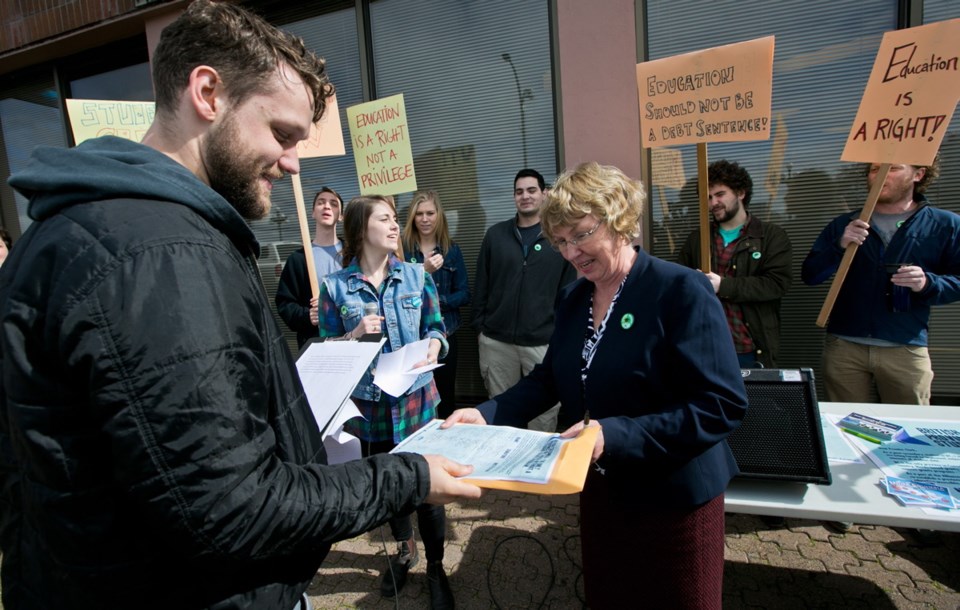University of Victoria students spoke up Tuesday against a provincial government plan that could take away their right to drive if they can’t pay back their loans. The plan would leave those who default on student loans unable to renew their driver’s licence or vehicle registration.
About a dozen students gathered at the Insurance Corporation of B.C.’s Wharf Street licensing office and gave a 3,000-name petition to NDP advanced education critic Kathy Corrigan, who will present it in the legislature today.
UVic Students’ Society spokesman Greg Atkinson said the petition puts forward an alternative to the government proposal, which he called “punitive” and “short-sighted.”
In its place, he said, students are calling for a system of “needs-based, non-repayable grants.”
“What that is is up-front cash for students to be able to go to school,” Atkinson said. “It provides an awesome way for students from lower- and middle-income families [to access] post-secondary education.
“B.C. is the only jurisdiction in Canada without such a program.”
Grants tend to be in the range of $1,000 to $2,000 per year per student, Atkinson said.
He said pressure from students and the public is needed to push for change.
Corrigan said the NDP has supported a need-based grants program for some time. B.C. had such a program, but it was cancelled in 2004, she said.
The students’ society said B.C. students graduate with an average debt of $27,000 to $35,000, and face the highest interest rates on student loans in the country.
Finance Minister Mike de Jong defended the government’s plan for dealing with student debt.
“This would be a collection tool of last resort, where people are simply ignoring, absolutely, the debt they owe,” he said.
“We say a debt that they owe to the government, but it’s really a debt they owe to other taxpayers as well.”
De Jong also rejected the suggestion that the government does not offer adequate financial support to post-secondary students.
He said the government will begin handing out one-time savings grants of $1,200 this summer to eligible children born on or after Jan. 1, 2007. The government hopes the incentive program will encourage families to save for post-secondary education.
“So we are serious about wanting to ensure that people have the means to achieve the education and the training they require,” De Jong said.
He acknowledged that students face financial challenges, including incurring loans, but noted that such loans are interest-free until after the student has graduated. They’re then asked to enter into a repayment plan that is tailored to their circumstances.
De Jong said repayment plans take into account someone’s ability to pay.
“But what you can’t do is ignore, absolutely, your obligation. You can’t take the benefit and, then as a few people do — not many, but a few people — simply walk away and pretend that that debt or obligation doesn’t exist.”
The government says defaulted student loans in B.C. amount to about $186 million.
Under the legislation, an account will have to be in arrears for a year or more before ICBC starts blocking driver’s licence renewals. The government said it will not take action against someone who is making regular payments or can prove a financial hardship.
It also will issue warning letters before refusing to renew someone’s licence, and debtors will have a chance to prove financial hardship or enter into a repayment plan with the Ministry of Finance.



